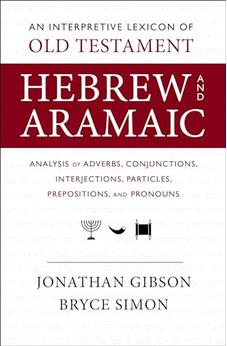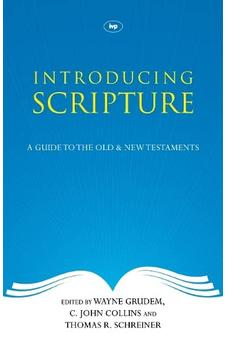Invitation to Biblical Theology: Exploring the Shape, Storyline, and Themes of the Bible (Invitation to Theological Studies)
Invitation to Biblical Theology provides a thorough overview of biblical theology that is accessible for those new to the topic but substantial enough for advanced study. Defining biblical theology as “the study of the whole Bible on its own terms,” Jeremy Kimble and Ched Spellman begin with a brief history of the discipline followed by a survey of contemporary approaches. They then lay out their own approach, built on the framework of the canon, the covenants, and Christ.Taking God’s plan of redemption in Christ as the uniting theme of Scripture, Kimble and Spellman survey the grand storyline of the Bible from Genesis to Revelation, showing how each division of the canon moves the overarching story forward. The following ten chapters survey central and recurring themes of Scripture including kingdom, worship, Messiah and atonement, God’s glory, and mission. The authors conclude with reflections on how biblical theology can serve the church as well as the academy.Review"It is no small thing to be asked to organize the contents of Scripture on its own terms as a coherent story. In so doing, Kimble and Spellman effectively demonstrate that the reports of biblical theology's death have been greatly exaggerated. Here is a proposal to do biblical theology in partnership with exegesis and systematic theology, with a focus on canon, covenant, and Christ, in and for both the academy and the church. I accept the invitation, as every serious reader of the Bible should." -- Kevin J. Vanhoozer, Research Professor of Systematic Theology, Trinity Evangelical Divinity School Published On: 2020-06-25“A gift to the church and the academy! I feel it would make a great introduction to biblical theology on so many levels. It describes the differences clearly between exegesis and systematics and biblical theology, and shows the importance of biblical theology without downplaying the others. Moreover, the plot line is excellent, and doesn’t minimize the canon at the expense of history. I especially like the idea of canon, covenants, and Christ as this seems to show both the priorities of biblical theology and its final goal. The section on central themes fleshes out how to do biblical theology after the study of the basics of methodology. Finally, the focus on the church and the academy is excellent because if biblical theology isn't for the people of God it is all for nothing. This would be a wonderful book for an upper level college class on hermeneutics or a seminary class. Well written, engaging, thorough, and practical.” -- Stephen G. Dempster, Professor of Religious Studies, Crandall University Published On: 2020-07-06About the AuthorJeremy Kimble is associate professor of theology and director of the Center for Biblical Integration at Cedarville University.Ched Spellman is associate professor of biblical and theological studies and lead developer of online Bible programs at Cedarville University.
Invitation to Biblical Theology provides a thorough overview of biblical theology that is accessible for those new to the topic but substantial enough for advanced study. Defining biblical theology as “the study of the whole Bible on its own terms,” Jeremy Kimble and Ched Spellman begin with a brief history of the discipline followed by a survey of contemporary approaches. They then lay out their own approach, built on the framework of the canon, the covenants, and Christ.Taking God’s plan of redemption in Christ as the uniting theme of Scripture, Kimble and Spellman survey the grand storyline of the Bible from Genesis to Revelation, showing how each division of the canon moves the overarching story forward. The following ten chapters survey central and recurring themes of Scripture including kingdom, worship, Messiah and atonement, God’s glory, and mission. The authors conclude with reflections on how biblical theology can serve the church as well as the academy.Review"It is no small thing to be asked to organize the contents of Scripture on its own terms as a coherent story. In so doing, Kimble and Spellman effectively demonstrate that the reports of biblical theology's death have been greatly exaggerated. Here is a proposal to do biblical theology in partnership with exegesis and systematic theology, with a focus on canon, covenant, and Christ, in and for both the academy and the church. I accept the invitation, as every serious reader of the Bible should." -- Kevin J. Vanhoozer, Research Professor of Systematic Theology, Trinity Evangelical Divinity School Published On: 2020-06-25“A gift to the church and the academy! I feel it would make a great introduction to biblical theology on so many levels. It describes the differences clearly between exegesis and systematics and biblical theology, and shows the importance of biblical theology without downplaying the others. Moreover, the plot line is excellent, and doesn’t minimize the canon at the expense of history. I especially like the idea of canon, covenants, and Christ as this seems to show both the priorities of biblical theology and its final goal. The section on central themes fleshes out how to do biblical theology after the study of the basics of methodology. Finally, the focus on the church and the academy is excellent because if biblical theology isn't for the people of God it is all for nothing. This would be a wonderful book for an upper level college class on hermeneutics or a seminary class. Well written, engaging, thorough, and practical.” -- Stephen G. Dempster, Professor of Religious Studies, Crandall University Published On: 2020-07-06About the AuthorJeremy Kimble is associate professor of theology and director of the Center for Biblical Integration at Cedarville University.Ched Spellman is associate professor of biblical and theological studies and lead developer of online Bible programs at Cedarville University.




























